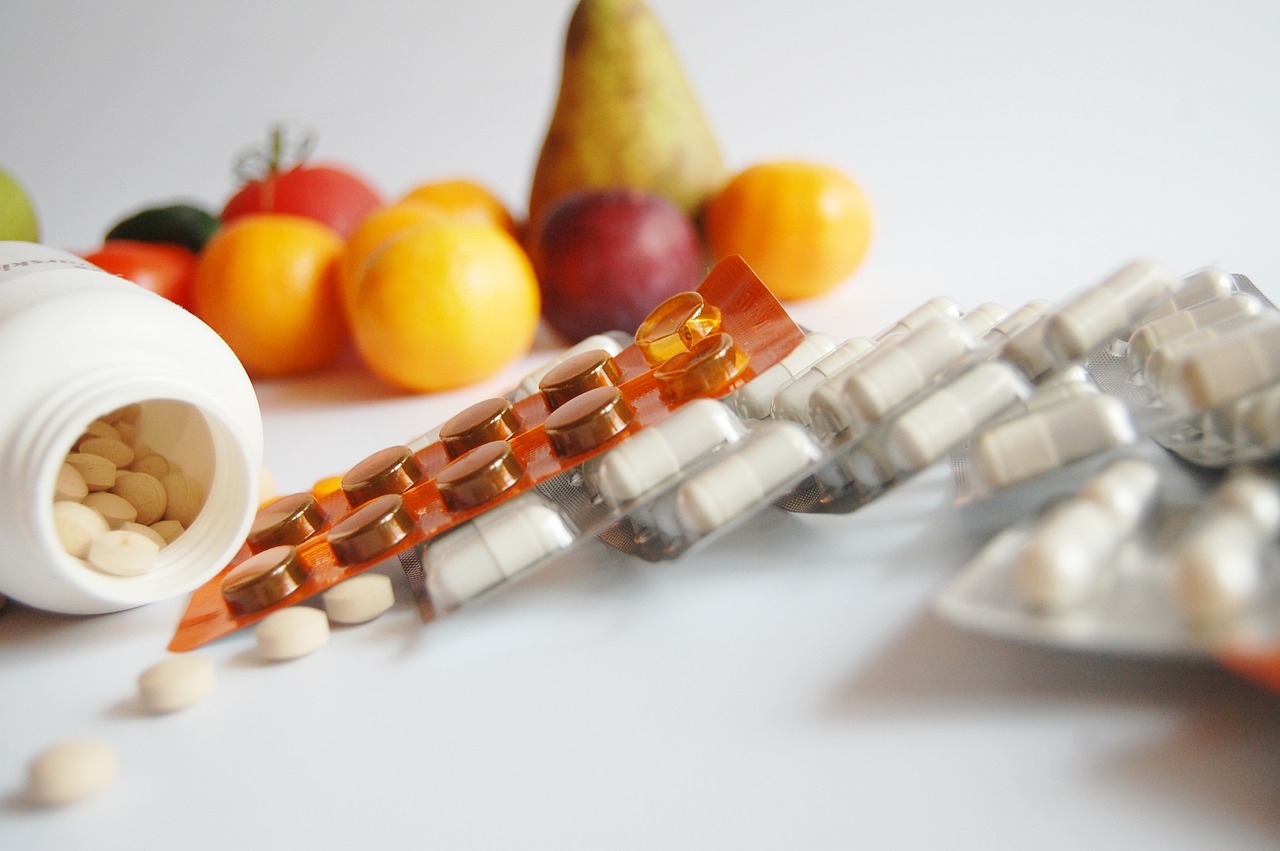Top 10 Vitamins and Minerals for Weight Loss, Fitness, and Good Health
Mar 30, 2015

Vitamins were once limited to giant horse pills issued to help your bones grow strong and your hair grow long, but now we’re lucky enough to have vitamins contained in all forms: gummies, chewables, drinkables, and even chocolate chews. Most people know vitamins are something you should be taking, but a surprising amount of Americans forgo vitamins all together; fine if your diet is nutritionally sound and packed with veggies, fruits, dairy, learn proteins, and whole grains — but necessary if your diet is like most of ours (a little patchy).
Read on to find the top 10 vitamins and minerals for weight loss and fitness, but bear in mind that we’re not doctors, and any major changes in your diet and health, along with supplementation from vitamins and minerals, should be discussed with a health care professional.
Vitamin D
Known as the sunshine hormone (your body converts light from the sun’s rays into this hormone), Vitamin D helps cells respond to insulin (a hormone critical to metabolism) by pushing glucose into cells, because cells are fueled by glucose as energy. The more your cells respond to insulin, the more calories are properly converted to energy. Vitamin D may also interact with Leptin, the “I’m full” hormone that tells your brain to stop eating. If you’re low on Vitamin D, you may be lacking Leptin — keeping your brain chowing down before your tummy says “Stop!”. Vitamin D also interacts with calcium, helping your body absorb more of this precious mineral. Studies have recently linked Vitamin D deficiency to depression, anxiety, and fatigue, so if you’re experiencing unusual sluggishness, sadness, or stress, it may be time to have your levels checked.
Vitamin B12
Most people have driven by those weight-loss clinics in strip malls that tout B12 shots for quick weight loss. While the efficacy of B12 causing direct, immediate weight loss is debated, B12 does help your energy production by better converting food into energy. And, as we all know, more energy = more desire to work out and continue to eat well. As a water soluble vitamin, it’s usually found in animal protein from fish, chicken, and beef. B12 also creates red blood cells, and is a key vitamin for helping you maintain appropriate iron levels, as those who are severely deficient in Vitamin B-12 are likely to be anemic.
Vitamin B5
Also known as Pantothenic Acid, Vitamin B5 aids in the proper use of carbohydrates, proteins, and lipids within your metabolic system. B5 also keeps the nervous system healthy and speeds up the healing process after injuries. B5 also works hand in hand with the other suite of B Vitamins (also known as the B Complex) to reduce stress. You can also thank Vitamin B5 for increasing good cholesterol, decreasing bad cholesterol, and aiding in the production of the sunshine vitamin, Vitamin D.
Vitamin C
Move on over, cold and flu season; Vitamin C has another job, and it’s keeping your energy levels up to facilitate a high-functioning metabolism. While C is another vitamin that helps convert glucose into energy, it’s also an antioxidant that blocks damage from free-radicals, which are the by-products left over when our bodies transform food into energy. Vitamin C is required for the growth and repair of tissues, forming collagen, repairing damage to cells caused by aging, and helping reduce stress. Sounds like a win win to us.
Coenzyme Q10 (CoQ10)
While technically CoQ10 is a “vitamin-like substance” and not a vitamin per-say, we thought it belonged up here with these other metabolic powerhouse. CoQ10 produces energy for cell growth and maintenance, and also functions as an antioxidant, which protect the body from damage caused by free radicals. Coenzymes help enzymes work to digest food, protect heart and skeletal muscles. Some people claim that CoQ10 can boost energy and speed recovery from intense exercise.

Calcium
Calcium and Vitamin D are best buddies — or maybe we should say they have a “D-lightful” relationship. Calcium is stored in fat cells, and some researchers think that the more calcium in a fat cell, the more fat that cell will burn. Calcium also clings to fat in your GI tract, preventing some of the fat form being absorbed into your blood stream. In addition to its metabolic advantage, calcium builds bones, helps blood clot, and help muscles contract.
Magnesium
Known as the “chill out” mineral, Magnesium relaxes muscles, promotes calmness, and can help you achieve a better night’s sleep; all of which sound great for losing weight or staying healthy. A 2013 study in the Journal of Nutrition found that higher magnesium intake is related to lower levels of fasting glucose and insulin (key components of fat and weight gain). Other studies suggest magnesium can help treat conditions like osteoporosis, PMS, migraines, depression, anxiety, and more.
Chromium Picolinate
Chromium is a mineral that works with insulin. Some claim that Chromium can help burn more calories, reduce appetite, and boost muscle mass, but some say that 200 to 1,000 micrograms of chromium a day has no significant benefit. However, those that do advocate for chromium say that it works together with insulin in the pancreas to metabolize carbohydrates.
Zinc
Just like Vitamin C, Zinc usually gets its claim to fame in the flu and sickness world, but Zinc has another benefit: contributing to hormonal balance in the body, especially testosterone. Zinc also helps protein production, assists with enzyme regulation, and even works as a neurotransmitter, which is a key component of the body’s internal communication system. (Don’t forget its long-applauded immune system boosting skills, too.)
Potassium
Everyone needs potassium to keep their organs functioning; and luckily, it’s abundant in many foods. Potassium fights bloat and aids in proper muscle contraction. (Some people say a banana a day will keep a Charlie Horse away.) While those with a healthy diet should be consuming enough potassium, low potassium is associated with a risk of high blood pressure, heart disease, stroke, arthritis, cancer, digestive disorders, and infertility. Potassium will assist in keeping muscle cramps at a minimum, and reducing pesky bloating.
Are you taking any of these vitamins already? What other vitamins have you personally noticed help you feel your best?

Author: Alyssa Curran
Alyssa Curran does social media by day and tweets pictures of her cats and food by night. When she’s not hanging out on social media, she’s writing on the Double Chin Diary, buying nail polish, or perpetually trying to get in shape.
Follow Alyssa @lyssacurran or @doublechindiary, or on Facebook here.









